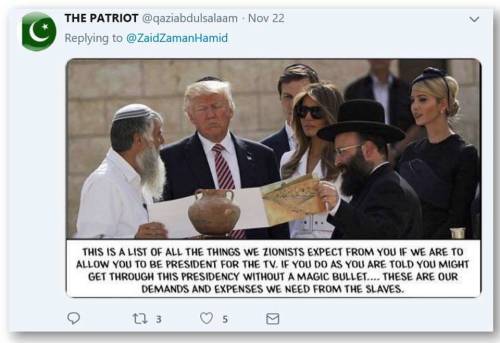In a devastating commentary on the end of the US troop surge in Afghanistan, Walter Russell Mead noted sarcastically:
“We should all be very glad that we have a Democratic president right now; otherwise the news would be terrible. We would be seeing a rash of horrible and depressing stories in the newspapers about strategic failure […]
There would be continuous coverage of the disarray in Afghanistan: the soldier’s we’re training are shooting us, the corruption is intensifying, and the opium trade spreading. There would be story after story about how Afghanistan seems little changed after the surge, and how peace is still not at hand. These stories wouldn’t be on the back pages; they’d be perceived as major news with profound implications for America’s global position […]
There would be bitter, wounding comparisons between the president and LBJ in Vietnam. If we had a conservative Republican president right now, we’d be hearing him compared to the noble Duke of York, who marched 10,000 men to the top of the hill only to march them down again.
And we’d be hearing all kinds of damning stories about the failure of the U.S. government to deal with the chaos in Pakistan.
We’d also be reading stories linking the apparent U.S. failure in Afghanistan to the empowerment of anti-American movements throughout the Middle East. The recent riots would be used as a stick to beat the president with—his weakness, indecision and strategic inconsequentialism in Afghanistan would be endangering our interests all over the region. Instead of concentrating on the real terror threat, the press would tell us, this hypothetical clueless Republican president wasted time, treasure and attention on a failed strategy in Afghanistan. The press would try to hang the corpse of the U.S. ambassador in Libya around the neck of a Republican president, if we had one right now.
But thankfully we have a Democratic president, and in an election year the normally feisty American media—the same media that worked night and day to expose every flaw and contradiction in the Bush policies in the region (and they had plenty to expose)—is too busy reporting the flaws in the Romney campaign […] to pay attention to anything as insignificant as a comprehensively failed presidential strategy in a foreign war.”
This is not the first time that Mead has criticized the media, and I’ve quoted him repeatedly (see e.g. here) because in my view, his voice is particularly important in the fiercely partisan debate about media bias. As Mead himself notes in a new essay on the public’s growing distrust of the mainstream media (MSM), complaints about media bias are usually associated with the political right – and therefore shrugged off by the liberal media elites. Since Mead has a well-deserved reputation as a brilliant analyst whose focus on substance largely ignores partisan politics, his criticism of the media is all the more noteworthy.
In his most recent essay on this subject, Mead suggests that we might begin to see the “MSM Tipping Point On Obama in the Middle East.” He argues that the recent “anti-American riots that have been rocking the Muslim world since 9/11 [2012] have shaken the [media] establishment out of its complacency” and that there is now a growing realization that “[the] turbulence in the region is impossible to miss, the problems for American interests and even security are disturbing to contemplate, and the failures of the Obama administration can no longer be ignored.”
However, the fact that the failures of the Obama administration’s Middle East policies have been ignored by the MSM for so long has some important implications.
Perhaps most obviously, there are a number of analysts who can rightfully say “told you so.” If I could name just one of those analysts, it would be Barry Rubin – and I think everyone who has followed his prolific and knowledgeable commentary over the past few years would agree that his readers knew long ago what the MSM seem to discover only now.
But of course, for the past few years of the Obama administration, it was “right-wing” or “neo-con” to find fault with US Middle East policies. This kind of labeling – practiced enthusiastically both by the left and the right – is of course an easy way to dismiss an argument by saying essentially: you have your world view and I have mine, and yours is wrong.
What is completely ignored is the question if the rejected view is based on facts and logical reasoning. This is perhaps hardly surprising since we live in a time when almost all certainties have been shattered and postmodernism has made it fashionable to assert that there is no such thing as “facts,” let alone “truth”.
I have to admit that I was delighted to find out that it is apparently not as old-fashioned as I had feared to ponder what all this means for the politics of our times: just last fall, the Hannah Arendt Center at Bard College organized a conference devoted to exploring the challenges of “Truthtelling: Democracy in an Age Without Facts.” While I feel quite ambivalent about Arendt and have some reservations about the introductory lecture for this conference, I think there is one observation that deserves to be cherry-picked:
“We face today a crisis of fact. Facts […] are all around us being reduced to opinions; and opinions masquerade as facts. As fact and opinion blur together, the very idea of factual truth falls away. And increasingly the belief in and aspiration for factual truth is being expunged from political argument.”
But it’s actually not just about facts, but also facts in their relevant context. One excellent example is the attempt of Justin Martin, a journalism professor blogging at the prestigious Columbia Journalism Review, to use published data about the number of journalists jailed in various countries to calculate the completely meaningless ratio of how many journalists per capita are jailed in any given country. You can easily see where this gets us: Naturally, tiny Israel swarming with journalists needs to arrest only one journalist to get a bad ranking, while a big and populous country like China with relatively few journalists can round up quite a few and still look pretty good.
As Sohrab Ahmari rightly noted in a critical commentary:
“The ultimate impact of pieces like Mr. Martin’s is a softening of the reading public’s moral intuitions and sensitivities. By placing Israel on the same plane as the likes of Iran and Syria, Mr. Martin minimized the threats faced by journalists working under genuine authoritarianisms—not to mention the broader human rights catastrophes underway in these societies.”
Tellingly, in his response, Justin Martin notes right at the outset:
“Some issues in journalism fire up audiences more than others […] Globally, it is reporting on the Middle East, particularly Israel/Palestine matters, that draws ire, fulsome praise, or ad hominem molotovs.”
Of course, this obsession with “Israel/Palestine matters” has to a considerable degree been created by the media, not least because in the wake of 9/11, it has become particularly popular to view Israel as the root cause for the Middle East’s problems: after all, agreeing with long-held Arab and Muslim “narratives” that depict the tiny Jewish state as the region’s biggest problem is a fabulously convenient way to follow the “politically correct” imperative to avoid a “clash of civilizations.”
But as Walter Russell Mead observes in a just published must-read essay entitled “Dispatches From The War That Nobody Wants:”
“We may be tired of the war on terror, but the terrorists aren’t tired of waging war on us. Far from it. They are just warming up.”
This is bad news for everyone – but for Israelis, it’s not really news. However, thanks to the MSM, this will be really bad news for a lot of people.
* * *
Cross-posted from my JPost blog.
UPDATE:
Walter Russell Mead has done it again: In yet another new must-read essay under the title “Thank God W Isn’t President Anymore,” Mead pokes more fun at the media, but also offers some very serious and important observations.
As a teaser, here’s one highlight from the fun part, fantasizing what we would get to read if Bush was still president:
“There would be no end to the woes and the recriminations. There would be the most moving and eloquent examples of hand wringing in the New York Review of Books, elegantly demonstrating that the cretinous assumptions and moral failings that led Bush into his failed Afghan policy weren’t his alone, but reflected broader, deeper failings in America itself. One is almost sorry for the sake of the authors of these diatribes that Bush is gone; the failure of our Afghan strategy is so sweeping, so unavoidable, that it would be the best possible backdrop against which to paint a stirring portrait of a failed president misleading a flawed people. What works of polemical literature have been lost, what inspired jeremiads will never be penned, what scalding portraits of America’s inherent flaws will never see the light of day because W left the White House too soon.”
In the serious parts of the essay, Mead points out that there “may not be any real answers to America’s conundrums in Afghanistan;” as another example of a problem that might not have a solution, Mead mentions the “Israel-Palestine problem.”
Taking the media to task once again, he argues:
“The implicit assumptions in the press that anything less than a flawless performance in war is prima facie evidence of bumbling incompetence merely reflects the cluelessness and arrogance of a pseudo-educated elite that thinks textbooks on theory and lessons in political correctness plus good SAT scores amount to a grounding in the real business of life.”
But Mead emphasizes that he is of course not advocating that the media should treat Obama as it treated Bush:
“There is a happy medium between clueless cheer leading and attempts to destroy: it is called responsible analysis [and] we could use a lot more of it. A press that neither waves pom-poms nor throws stink bombs non-stop is an important component of healthy democratic society; there are plenty of excellent reporters out there who want to do exactly that. May their tribe prosper and their numbers increase.”








